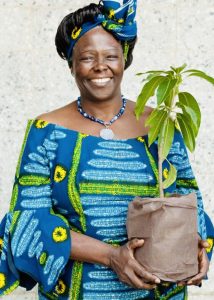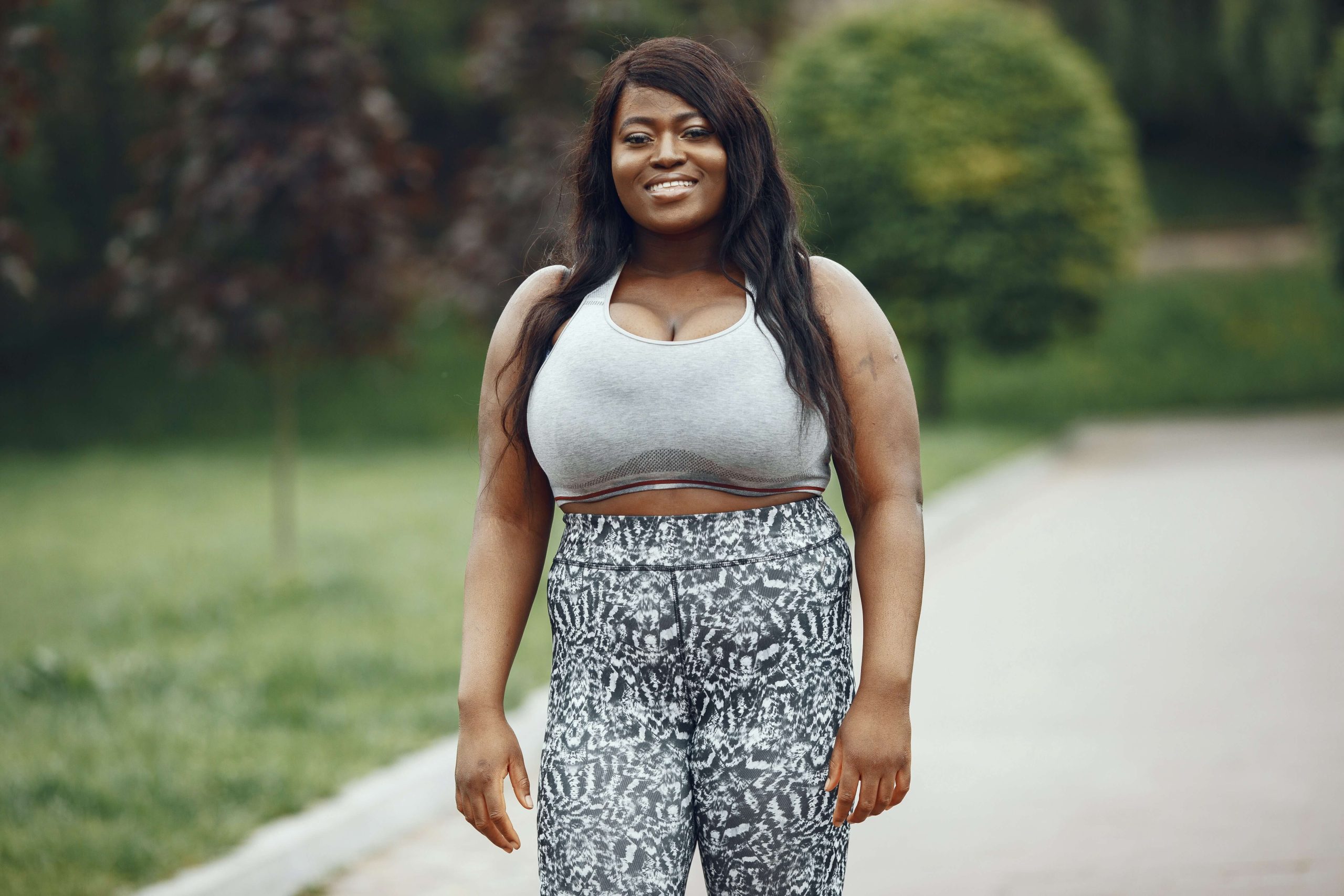The African woman whose legacy has changed my life: Wangari Maathai
This is the story of the African woman who made me love the environment. Her story inspired me to pursue a career in environmental and climate justice, and it also inspired me to pursue my dreams, irrespective of the societal limitations placed on my skin colour and gender.
Wangari was born in Kenya on April 1st, 1940, during British colonial rule. Her family was of Kikuyu origin, and her father was polygamous. As a child, Wangari, was given a small plot of land to grow her own food and to learn how to cultivate the land. She completed her primary and secondary education in Kenya. In 1960, she received a scholarship to commence her university studies in the United States of America, where she received a Bachelor's and a Master's degree in Biological Sciences. In April 1966, after returning to Kenya, Wangari met her future husband, Mwangi Mathai, a politician. The two got married in May 1969.
From 1966 to 1982, Wangari Maathai was a lecturer at the University of Nairobi, and in 1971, Wangari received her Doctorate in Veterinary Anatomy from the University of Nairobi, becoming the first woman in eastern Africa to receive a PhD.
 In 1977, Wangari and her husband got divorced. Soon after that, Wangari was imprisoned because she publically contested the judge's ruling regarding her divorce. As this ruling was in favour of her ex-husband and it shamed her for being a woman in need of a divorce. As a result, the judge ordered her to stop using her former husband's last name. In defiance of the judge, she changed the spelling of her last name, adding an "a" and becoming Wangari Maathai. That same year, she founded the Green Belt Movement. This grassroots environmental non-governmental organization planted over 30 million trees across Kenya over the next three decades. This movement became a successful platform for women's empowerment (especially for rural women in Kenya). As a result, she became known as Africa's Mother of Trees.
In 1977, Wangari and her husband got divorced. Soon after that, Wangari was imprisoned because she publically contested the judge's ruling regarding her divorce. As this ruling was in favour of her ex-husband and it shamed her for being a woman in need of a divorce. As a result, the judge ordered her to stop using her former husband's last name. In defiance of the judge, she changed the spelling of her last name, adding an "a" and becoming Wangari Maathai. That same year, she founded the Green Belt Movement. This grassroots environmental non-governmental organization planted over 30 million trees across Kenya over the next three decades. This movement became a successful platform for women's empowerment (especially for rural women in Kenya). As a result, she became known as Africa's Mother of Trees.
Wangari was imprisoned several times in the 1980s for criticizing Kenyan President Daniel Arap Moi and for demanding multi-party elections in Kenya. She stood for environmental justice due to new construction developments that endangered the environment and indigenous peoples' rights. Furthermore, in 1992, Maathai ran for president on a platform urging environmental protections. And at that time, she was the first African politician to embrace that cause publicly. She withdrew from the elections but ran again in 1997. In 2003, she founded the Mazingira Green Party of Kenya and later that year, she was appointed Assistant Minister for Environmental and Natural Resources by Kenyan President Mwai Kibaki. 
In 2004, Maathai won the Nobel Prize for her work in protecting the environment through political lobbying and reforestation initiatives. These initiatives were aimed at empowering rural women in Kenya. This was an outstanding award as it's prestige helped put environmental rights on the map.
In 2006, she was one of the founders of the Nobel Women's Initiative, an organization of six women recipients of the Nobel Prize, representing North and South America, Europe, the Middle East, and Africa, who united in their efforts to work for peace, justice, and equality throughout the world. In January 2007, Maathai hosted the Global Young Greens conference in Nairobi, which some have described as a meeting of the next wave of the leadership of the world environmental movement. In addition, Maathai wrote four books, including "The Greenbelt Movement: Sharing the Approach and the Experience".
At 71, Wangari Maathai died from complications from ovarian cancer treatment at a Nairobi hospital.
But her legacy lives on!
Today millions of women like myself have gained inspiration from her story and aim to share this story with many people. Her passion, resilience and approach to environmental rights and gender equality contributed significantly to my career path. I am forever grateful!
Source for refernace:
The founder of the Green Belt Movement and the 2004 Nobel Peace Prize Laureate
Photo 1 and photo 2 credit: Pinterest
When climate change impacts African women, it also affects me as an African woman
My name is Ms Rosemary Olive Mbone Enie. I am a Cameroonian Geologist, Environmentalist, Social Environmental Entrepreneur (SEE), Eco-communities Builder, Gender and Childhood Ambassador. I was born on the 27th August 1966 in Victoria South West Region of Cameroon.
Victoria, now called Limbe, is a seaside town by the banks of the Atlantic Ocean. While growing up, we had several clean flowing rivers, which took its source of the ranges of the majestic Mount Cameroon through the rocky volcanic terrain into the Atlantic Ocean. Back in the youthful days' rainfall was stable, farmers had specific reasons to plant their crops, and the yields were moderate. The town of Victoria (Limbe) was full of trees and plantations of Oil Palm owned by the Cameroon Development Corporation (CDC) and other local farmers. The city's average temperature was moderate, and Victoria was a liveable city with an average population size.
For the past 50 years, there has been a rapid change in the development of the city of Limbe. The population has grown so fast, hitting over 500,000 inhabitants. They felled many trees to build houses. The city's average temperature has become very hot, especially in the long dry season. Rainfall is very erratic, which sometimes extends to October and November. Many rivers and streams dry out during the rainy season giving rise to water shortages within the communities. Farmers have resorted to using chemical fertilizers to improve their yields, which harms the community's health. Like many African countries, Cameroon faces the challenge of Water Security, food security, loss of biodiversity, etc. My country is already facing consequences of climate change, including an abnormal recurrence of extreme weather phenomena such as violent winds, high temperatures and heavy rainfall, which endanger communities' ecosystems and the services they provide.
For the past 30 years, I have been taking practical actions to address Water, Sanitation, Hygiene, Environmental Education and Management activity across Africa. As a result, I had the opportunity to work with women and youth groups in Cameroon, Nigeria, Ghana, Liberia, Tanzania, Kenya and Rwanda. I kick-started several Pan African initiatives to address environmental and climate change challenges in Africa. I received a scholarship to study Ecovillage Design Education at UNESCO in Germany. It led me to initiate the Pan African Eco-communities Network (PEN) Initiative to transition 55,000 traditional African villages into Ecovillages. In addition, I started the Tunza Afrika Program (TAP) in 2015, which continues to engage, promote and support the interest of young people in water, environment, energy, food, science and technology issues within the formal non-formal educational sectors across Africa.
Climate change poses a unique and general challenge within Africa and at the global level. It concerns everyone on planet Earth. The people likely to suffer most from the impacts of climate change are the Most Vulnerable Groups (MVGs), those least responsible for causing it. It is widely recognized that developing countries are expected to suffer more from the devastating effect of climate change. For example, the African continent is responsible for 3.8 per cent of global CO2 emissions, yet the impact of climate change will be unfairly devastating.
For over 25 years, I have been working in the Gender and Development Sector and 21 years following the International Climate Change Negotiation. Women are particularly affected by the dramatic changes in climate patterns. Women living in poverty are the most threatened by the dangers that stem from global warming. For example, in 1991, when a cyclone and flood severely affected Bangladesh, the death rate was almost five times as high for women as for men. This was also obvious during the Tsunami that hit South-East Asia in 2006, where most victims were women.
Due to the existing gender inequalities, the different roles in society and the division of labour, women and men are not equally exposed to climate change impacts. They do not have the same adaptive capacities. We must acknowledge these differences in vulnerability and adaptive opportunities to ensure the success of adaptation measures. Furthermore, if we consider the gender perspective in communities across Africa, we will avoid further gender inequality.
A gender perspective is often overlooked in debates about climate change across Africa; it is high time to change this with COP 27 in Cairo, Egypt!
Gender analysis is crucial to understand better the impacts of climate change on human communities, particularly food security, access to natural resources, such as water, firewood, and health. Simply because women are often primarily responsible within the family for these tasks. In African countries, the women fetch and carry water at great distances to meet the needs of their village communities. They labour every day, without pay, to grow enough food for their families and communities.
Women can be real agents for change in their homes, their communities, and society as a whole in the continent of Africa. They can take over new renewable forms of household energy, such as biomass, biogas, solar. They can tackle climate change as consumers, as an educator. Their specific role in educating their children can promote behavioural change in human or economic, cultural, social and environmental activities.
When climate change impacts African women, it also affects me as an African woman!


